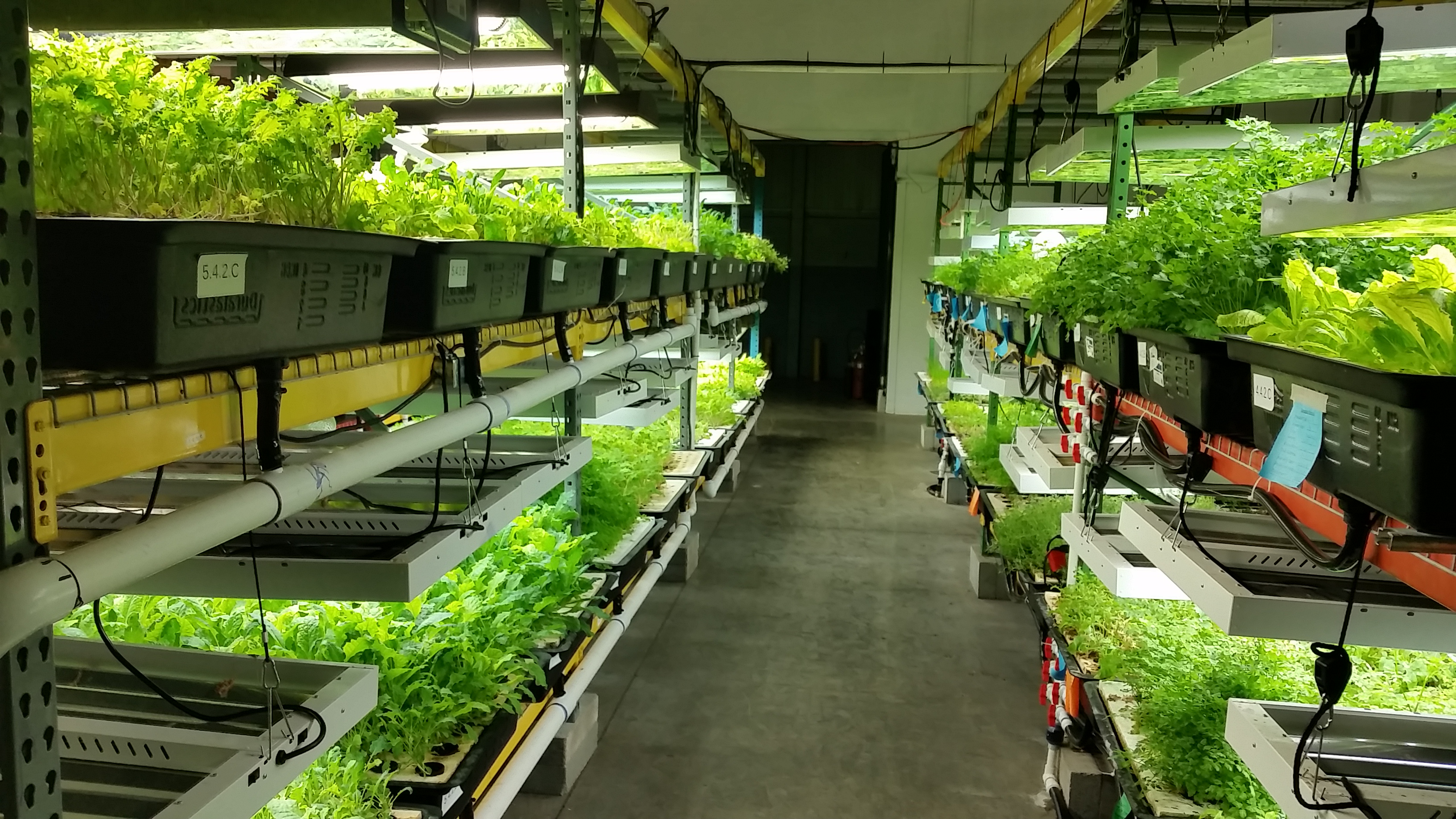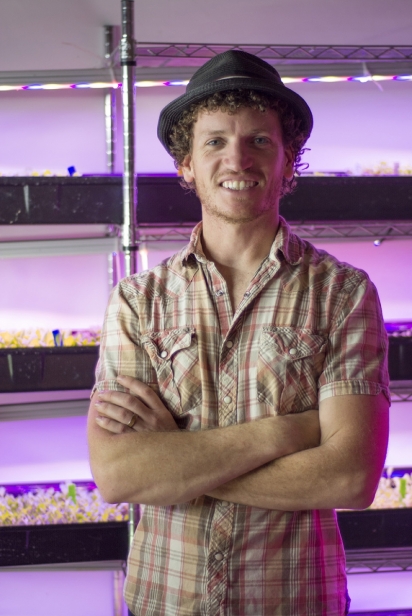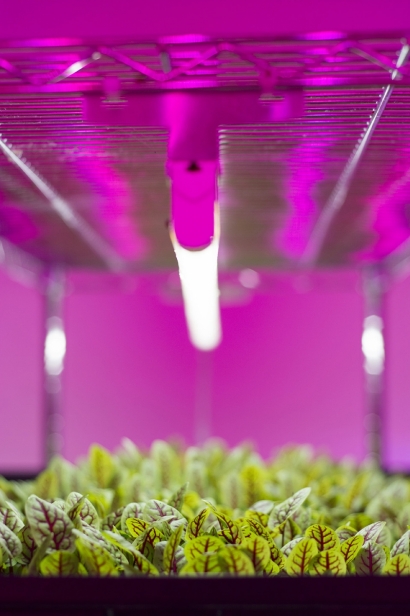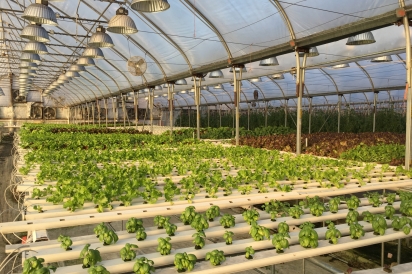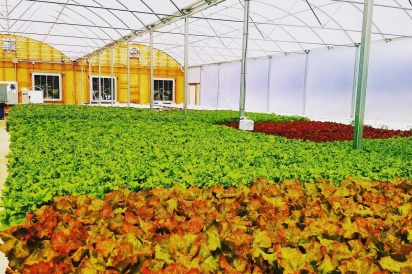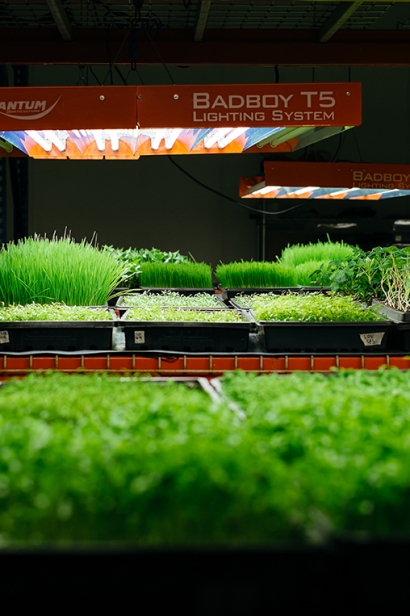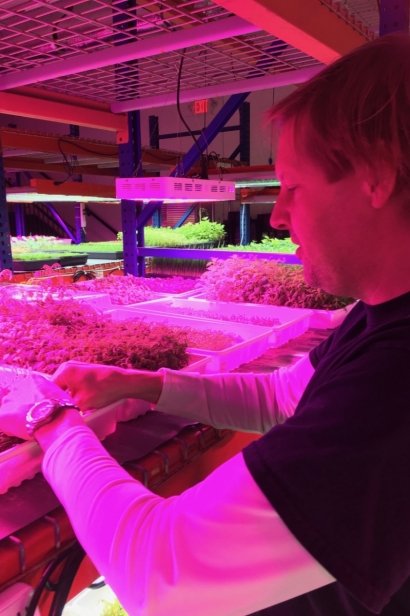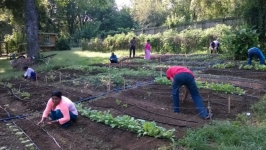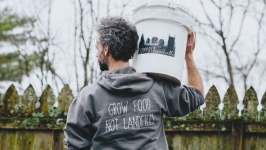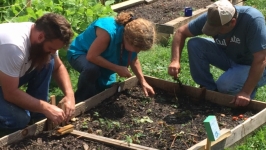4 Hydroponic Gardens in Nashville
Hydroponically speaking – Nashville now springs eternal. Over the course of the last few years, Music City has sprouted a bouquet of hydroponic farms, each harvesting fresh produce year-round. This is good news for Nashville's chefs who like to plate February fare with precious, little sprouts of green. But it's even better news for the rest of us, Nashville's home chefs. Think about it. Cold and cloudy though it may be, we can still brighten up these winter days with the reds and greens of a fresh Caprese salad, and all (sans olive oil), from locally sourced ingredients: the basil, the tomatoes, even the mozzarella. This is because hydroponics combines age-old farming principles with innovative technologies, allowing growers to harvest produce without the limitations of weather, seasons, or pests, and all while using 90% less water. Hydroponics also allows for urban farming, growing the food much closer to our forks.
Hydroponics grows plants in nutrient-enriched water instead of soil. The word hydroponics comes from the roots “hydro," meaning water, and “ponos," meaning labor. Compared to conventional gardening, hydroponic gardening requires far less water while more efficiently oxygenating the plants' roots. Further, since hydroponic systems are often situated above ground, it's easy to deter pets and pests and virtually eliminate soil-related diseases.
GREENER ROOTS
Jeffrey Orkin’s hydroponic ambitions blossomed in a small apartment in downtown Nashville. Inspired by systemic sustainability concepts learned through working in landscape architecture, Jeffrey began experimenting with growing his own food, despite the limited space. His efforts evolved into the Urban Hydro Project, which outgrew his apartment, and a storage unit, and then a utility space. As he remembers, “I realized I could keep doing this as a small-scale thing, or actually do this.” Today, Jeffrey is the founder of Greener Roots, an urban hydroponic commercial farm growing up to six tons of produce annually, ten minutes from just about everywhere in the Nashville core. For Nashvillians, it hardly gets more local than this. “We don’t have anything that travels further than 24 miles,” Jeffrey proudly reports.
For Jeffrey, the farm poses challenges well-suited to his interests. “I am very business-minded,” he says, “and I want to get this business working in order to have a social impact.” Eventually, he hopes to offer programming, educating students about sustainable growing practices. The experimental nature of the work likewise motivates Jeffrey and his team, which include his wife, Julia, and their partner, Andy. As Andy says, “The whole place is a giant experiment.” Their experiments have yielded a fascinating and delicious range of crafted crops including African kale, papalo, Japanese shiso, bronze fennel, red-veined sorrel, and their own “Nashville Blend Lettuce.”
More than anything, Jeffrey and his team are motivated by customers’ enthusiasm. “People think it’s awesome that year-round food can come from under five miles away. People loving a product we’ve put our love into—that’s the most rewarding part.”
You can find Greener Roots produce at Produce Place, Turnip Truck, Herban Market and Hendersonville Produce.
KY HYDRO FARM
Jerry Wyatt and his son, Matt, come from a long line of Kentucky farmers. About ten years ago, the pair began to brainstorm better uses for the greenhouses on their property. They soon adopted hydroponics, learning what they could from whatever sources they could find to grow tomatoes. As Matt says, “By growing inside, we make a microclimate and fool the plants so they are happy all the time.”
Amid their success, the Wyatts faced an unexpected challenge in finding a customer base. “At first,” says Matt, “customers had a negative conception: ‘Tomatoes produced in a greenhouse? That can’t be good.’ But once they try it, they change their mind. These days 75-80% of our customers come because we grow hydroponically. The quality is far superior to anything trucked in from far away, which takes the freshness out of it.”
You can find KY Hydro Farm produce at the Nashville Farmer's Market. Check out their CSA options!
HYDROHOUSE FARMS
Vanderbilt-trained mechanical engineer, Hassan Sharaff, moved to Nashville in 2016 to open HydroHouse Farms. After years in the corporate world, he decided to do hydroponic food production where he could grow high volumes of quality food in relatively small areas while also saving a lot of water in the process. Nashville was the perfect location as the population is rapidly expanding and space is becoming more limited.
Unlike some of the artificial light hydroponic systems, HydroHouse uses natural sunlight to grow their plants. They also never use any pesticides, herbicides, or fungicides. Their waste is very minimal as they compost the plant roots after harvest, and reuse wastewater in an outdoor garden. "We also plan to incorporate solar energy and rain water into our system in the next year in order to move towards complete self sustainability."
Currently they sell to local individuals, families, and restaurants as well as donating any excess to 2nd Harvest Food Bank. They are in the process of getting their USDA GAP certification, giving them the opportunity to provide local schools and hospitals with fresh produce.
CARTER CREEK GREENS
If you‘ve had a fabulous dish garnished with beautiful greens chances are it came from a greenhouse smack in the middle of downtown Nashville, specifically Carter Creek Greens. Owner Tom Maddux started it five years ago in 2013. Previously in the food industry, he became frustrated by all the produce coming from southern California. It wasn't as fresh due to miles travelled. He knew there had to be a better way. “We started with some ideas of what we wanted to do, brought it to the chefs, and grew from there.” Today, he grows greens exclusively for chefs based on what they want. "The chefs grow the business. If it wasn’t for the chefs, we wouldn’t be doing what we’re doing."
His 4500 square foot greenhouse grows all the greens vertically by flourescents and LED lights. “All of our greens are snipped and delivered the same day. Short of walking out to your own garden and snipping it, it’s the freshest it can be."


